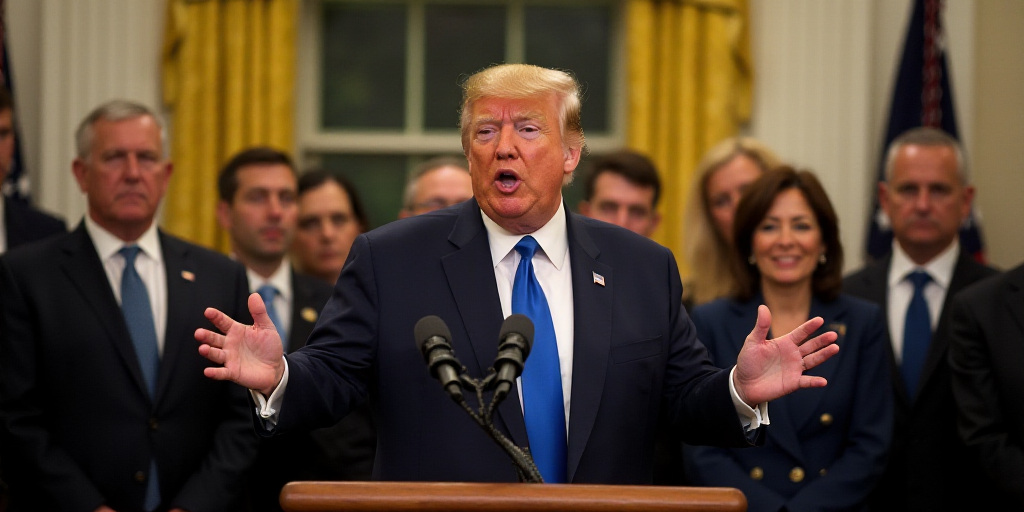Background on Donald Trump and His Stance on Crime
Donald Trump, the 45th President of the United States, has been vocal about his concerns regarding crime in major American cities. These cities are predominantly governed by Democrats and have been experiencing high rates of homicides, robberies, and armed assaults. Trump’s recent proposal to deploy military personnel in New Orleans is part of his broader campaign against crime in these predominantly Democratic-led cities.
Trump’s Previous Actions Against Crime
In line with his campaign, Trump has already taken steps such as sending the National Guard to Los Angeles and deploying federal forces in Washington D.C., where he enjoys extensive authority due to its federal jurisdiction status.
Local Opposition and Federal Intervention
However, local authorities have expressed opposition to this federal intervention, viewing it as excessive and a political pressure tactic. Critics argue that Trump is overstepping his bounds by assigning military personnel tasks typically carried out by local police and immigration agents, including detentions, searches, and seizures.
Trump’s Proposal for New Orleans
During a press briefing at the White House, Trump stated, “We are considering whether to go to Chicago or to a place like New Orleans, where we have a great governor, Jeff Landry, who wants us to step in and bring some order to a part of this country that has become… quite tough, quite bad.” He further promised to bring New Orleans under control “in about two weeks.” Governor Landry, a Trump ally, responded positively on Twitter: “We will accept the help of President @realDonaldTrump!”
Political and Social Context of New Orleans
Although much of Louisiana leans Republican, New Orleans itself is deeply Democratic and faces significant poverty issues contributing to its crime rate. Despite this, New Orleans has seen substantial declines in homicides and violent crimes this year, aligning with national trends.
Criticism and Counterarguments
Republicans argue that these statistics do not accurately reflect the on-the-ground reality, as many violent incidents are allegedly underreported. Critics like Democratic Congressman Troy Carter, who represents New Orleans and its surroundings, have stated, “Militarizing the streets of New Orleans is not a solution.”
Reactions from Other Affected Areas
JB Pritzker, the Democratic Governor of Illinois (home to Chicago), accused Trump of creating a political drama to conceal his corruption. Trump has also proposed sending troops to New York and Baltimore, further escalating tensions.
Key Questions and Answers
- What is Donald Trump’s proposal? Trump suggested deploying military personnel in New Orleans to combat crime, following similar actions in Los Angeles and Washington D.C.
- Why is there opposition to this proposal? Local authorities and critics argue that federal intervention is excessive, a political pressure tactic, and an overreach of presidential authority.
- What is the political and social context of New Orleans? Despite being part of a predominantly Republican state, New Orleans is deeply Democratic and grapples with poverty-related crime issues.
- What are the counterarguments to Trump’s proposal? Critics argue that militarizing city streets is not a solution and that the crime statistics do not accurately reflect the situation.
- How have other affected areas responded? Governor Pritzker of Illinois accused Trump of creating a political drama, while Congressman Troy Carter emphasized that militarization is not the answer.






